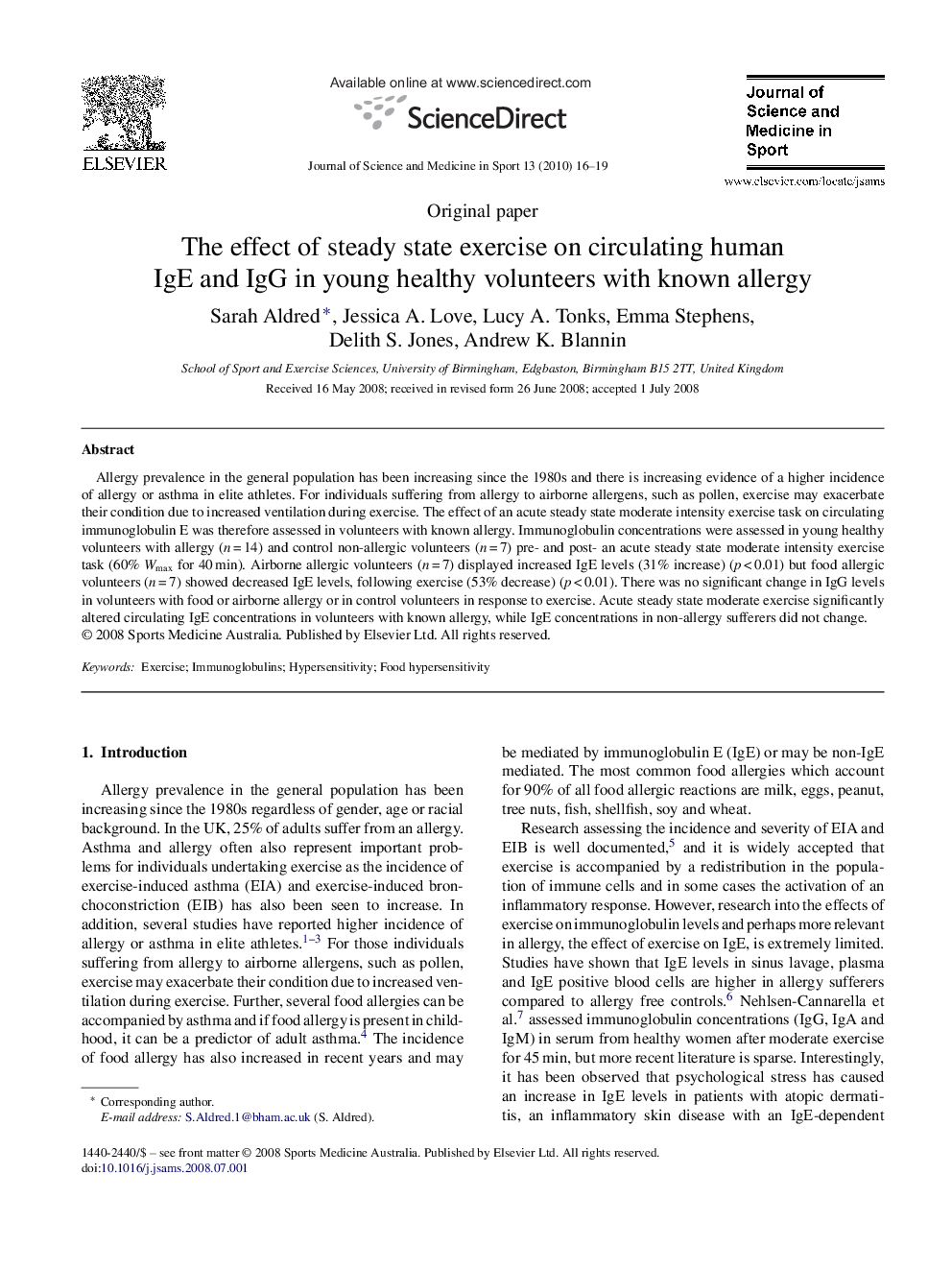| Article ID | Journal | Published Year | Pages | File Type |
|---|---|---|---|---|
| 2704823 | Journal of Science and Medicine in Sport | 2010 | 4 Pages |
Allergy prevalence in the general population has been increasing since the 1980s and there is increasing evidence of a higher incidence of allergy or asthma in elite athletes. For individuals suffering from allergy to airborne allergens, such as pollen, exercise may exacerbate their condition due to increased ventilation during exercise. The effect of an acute steady state moderate intensity exercise task on circulating immunoglobulin E was therefore assessed in volunteers with known allergy. Immunoglobulin concentrations were assessed in young healthy volunteers with allergy (n = 14) and control non-allergic volunteers (n = 7) pre- and post- an acute steady state moderate intensity exercise task (60% Wmax for 40 min). Airborne allergic volunteers (n = 7) displayed increased IgE levels (31% increase) (p < 0.01) but food allergic volunteers (n = 7) showed decreased IgE levels, following exercise (53% decrease) (p < 0.01). There was no significant change in IgG levels in volunteers with food or airborne allergy or in control volunteers in response to exercise. Acute steady state moderate exercise significantly altered circulating IgE concentrations in volunteers with known allergy, while IgE concentrations in non-allergy sufferers did not change.
